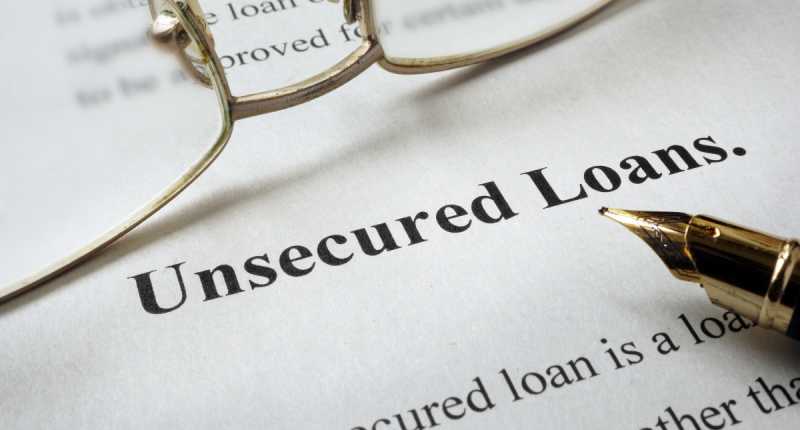In today’s world, where expenses keep rising and unexpected costs can pop up at any time, personal loans have become a popular way for many people to manage their finances. Whether you’re looking to consolidate debt, fund a home renovation, pay for education, or cover an emergency, personal loans offer the flexibility and cash flow you need.
But before you sign on the dotted line, it’s important to ask yourself: should I go for a secured loan or an unsecured one?
Knowing the difference between these two types of loans can help you make the best choice for your situation. Each comes with its own set of benefits and drawbacks, depending on your financial health, risk tolerance, and goals.
This article takes a closer look at secured versus unsecured personal loans, weighing the pros and cons of each. It also explains how working with a private money lender might fit into your options, especially if you need quick access to funds or don’t meet traditional bank requirements.
What Is a Secured Personal Loan?
A secured personal loan is a type of loan where you pledge an asset as collateral to back up the borrowing. This means you offer something valuable—like your car, property, fixed deposit, or other important possessions—as security for the loan. If you’re unable to repay the loan, the lender has the right to take ownership of the pledged asset to recover the money you owe.
Here are some common types of collateral used for secured personal loans:
- Real estate property (such as your home or an investment property
- Motor vehicles (like cars or motorcycles)
- Savings accounts or fixed deposits
- Valuable personal items (in rare cases, things like jewellery or artwork)
Using collateral often means lower interest rates and easier approval since the lender’s risk is reduced. However, it also means you need to be confident in your ability to repay to avoid losing your asset.
What Is an Unsecured Personal Loan?
An unsecured personal loan, in contrast, does not require any collateral. The lender extends credit based purely on the borrower’s creditworthiness, income, employment history, and ability to repay. As such, unsecured loans often carry a higher interest rate due to the increased risk assumed by the lender.
Common Use-Cases
- Debt consolidation
- Travel and holidays
- Wedding expenses
- Medical emergencies
- Educational costs
Key Differences at a Glance
| Feature | Secured Loan | Unsecured Loan |
|---|---|---|
| Collateral Required? | Yes | No |
| Interest Rate | Typically lower | Typically higher |
| Loan Amount | Often higher (depends on asset value) | Lower limit, based on income/credit score |
| Risk to Borrower | Risk of asset seizure | No asset risk, but credit score damage on default |
| Approval Speed | Slower (due to asset evaluation) | Faster |
| Eligibility Criteria | Flexible if asset value is high | Strict – depends on credit history and income |
Advantages of Secured Personal Loans
1. Lower Interest Rates
Because the lender has a form of security, interest rates on secured loans tend to be lower than their unsecured counterparts. This can result in considerable savings over time.
2. Higher Loan Amounts
The loan size can be more substantial, especially if the collateral is of high value. This makes secured loans ideal for large expenses like home renovations or business investments.
3. Longer Repayment Periods
Secured loans often come with extended repayment tenures, allowing for smaller, more manageable monthly payments.
4. Easier Approval for Low Credit Scores
If your credit score is less than ideal, having valuable collateral can compensate for your credit history and increase your chances of approval.
Disadvantages of Secured Personal Loans
1. Risk of Losing Your Asset
Perhaps the most significant risk is the possibility of losing the pledged asset if you default on the loan. This could mean losing your home or car.
2. Longer Processing Time
Due diligence around valuing and verifying the collateral can prolong the loan approval process.
3. Limited Asset Availability
Not everyone owns assets that can be pledged, especially young professionals or those just starting out financially.
Advantages of Unsecured Personal Loans
1. No Risk to Personal Assets
You don’t have to worry about losing your home or car if you face temporary financial hardship – though your credit score may suffer.
2. Faster Approval
With fewer checks and no need for asset valuation, unsecured loans are usually processed and disbursed much faster – often within a few days.
3. Ideal for Short-Term Needs
These loans are ideal for emergencies, quick purchases, or consolidating short-term debt.
4. Simpler Documentation
Without the need to present proof of asset ownership or valuation, the paperwork for unsecured loans tends to be simpler and quicker to compile.
Disadvantages of Unsecured Personal Loans
1. Higher Interest Rates
Lenders mitigate their risk by charging higher interest rates, which can significantly increase the total repayment amount over time.
2. Lower Loan Amounts
Since there’s no asset backing, lenders may be conservative with the loan amounts they approve.
3. Tighter Eligibility Criteria
Strong credit scores, stable employment, and high income are usually prerequisites for approval. Borrowers with financial instability may struggle to qualify.
Which Loan Should You Choose?
The decision to opt for a secured or unsecured personal loan should depend on your personal financial situation, risk appetite, and purpose for borrowing. Let’s explore some scenarios to guide your decision-making.
Scenario 1: You Have a Poor Credit History but Own a Home
A secured loan could be ideal. By using your property as collateral, you stand a better chance of getting approval and may even enjoy a lower interest rate, despite your credit score.
Scenario 2: You Need a Small Amount Quickly for an Emergency
An unsecured personal loan makes more sense here. The quick processing and minimal documentation are better suited for urgent needs like medical expenses.
Scenario 3: You Want to Consolidate Debt at a Lower Interest Rate
If you have valuable collateral, a secured loan may be a good option to reduce overall interest costs. However, weigh this against the risk of losing the asset if you default.
Scenario 4: You’re a Young Professional with No Assets
Unsecured personal loans are often the only viable option, assuming you have a steady income and good credit standing.
The Role of Credit Score in Both Loans
Regardless of the loan type, your credit score remains an essential component. For unsecured loans, it can make or break your application. For secured loans, a good score can still influence the interest rate and terms you are offered. It is always advisable to check your credit report beforehand and ensure it’s free of errors.
Final Thoughts: Balancing Benefit and Risk

Personal loans are powerful financial tools when used wisely. The choice between a secured and an unsecured personal loan ultimately depends on what you’re comfortable risking, how much you need to borrow, and how fast you need the funds.
If you have an asset you’re willing to leverage and need a sizeable amount at a lower cost, a secured loan could be advantageous. However, if speed, simplicity, and asset protection are your top priorities, an unsecured loan might be more appropriate.
Remember, borrowing is a commitment. Always evaluate your ability to repay, budget for the repayments, and consider seeking financial advice if you’re uncertain. A well-chosen loan can support your goals – but a poorly chosen one can set you back financially for years.





